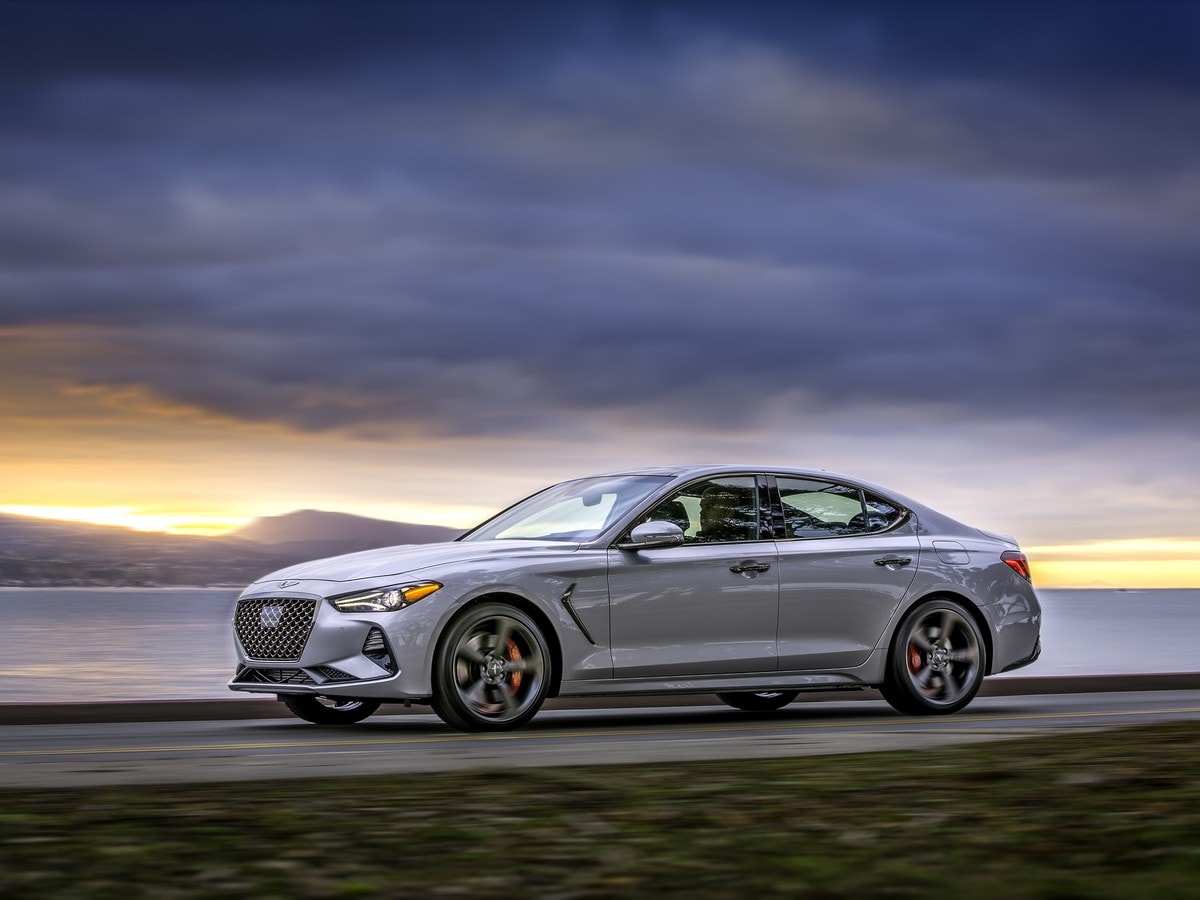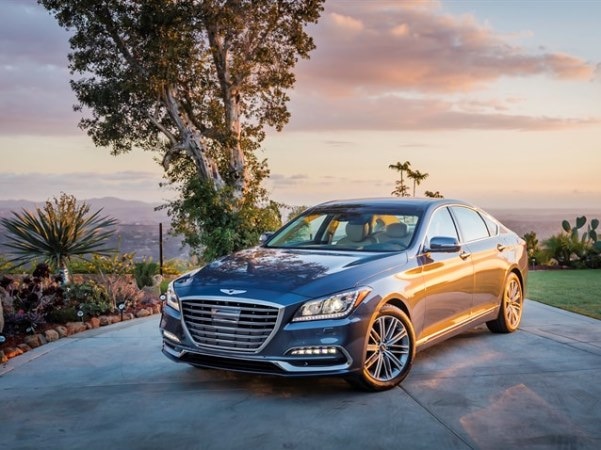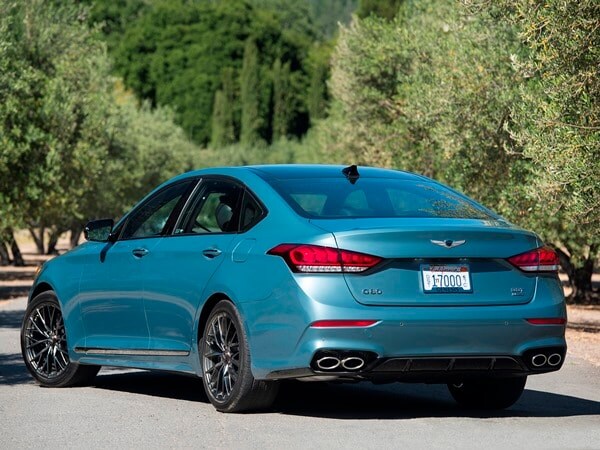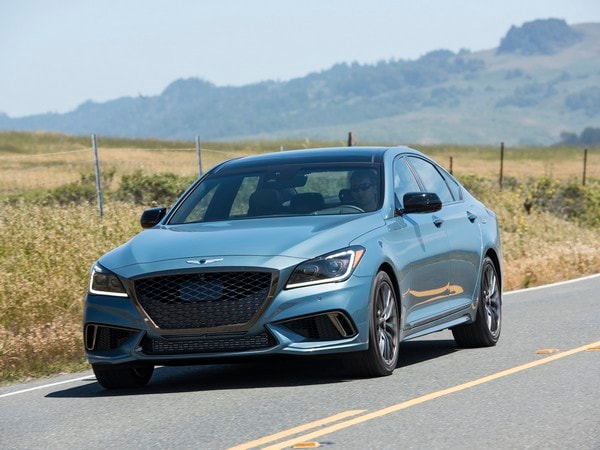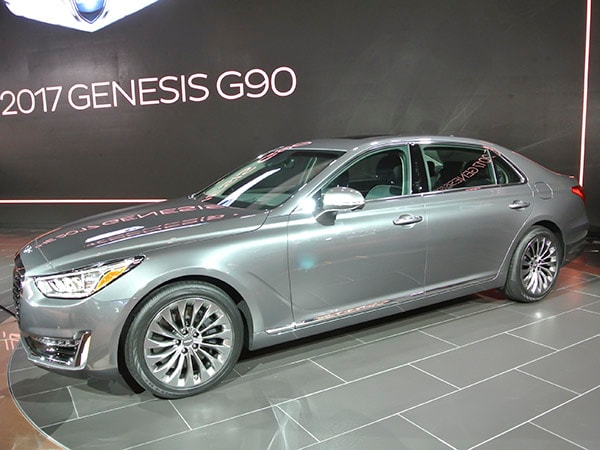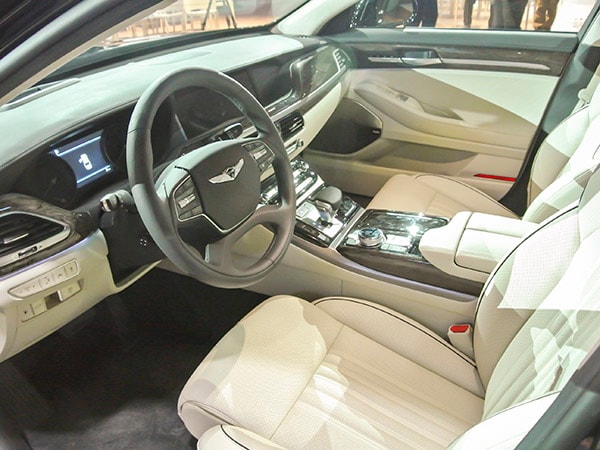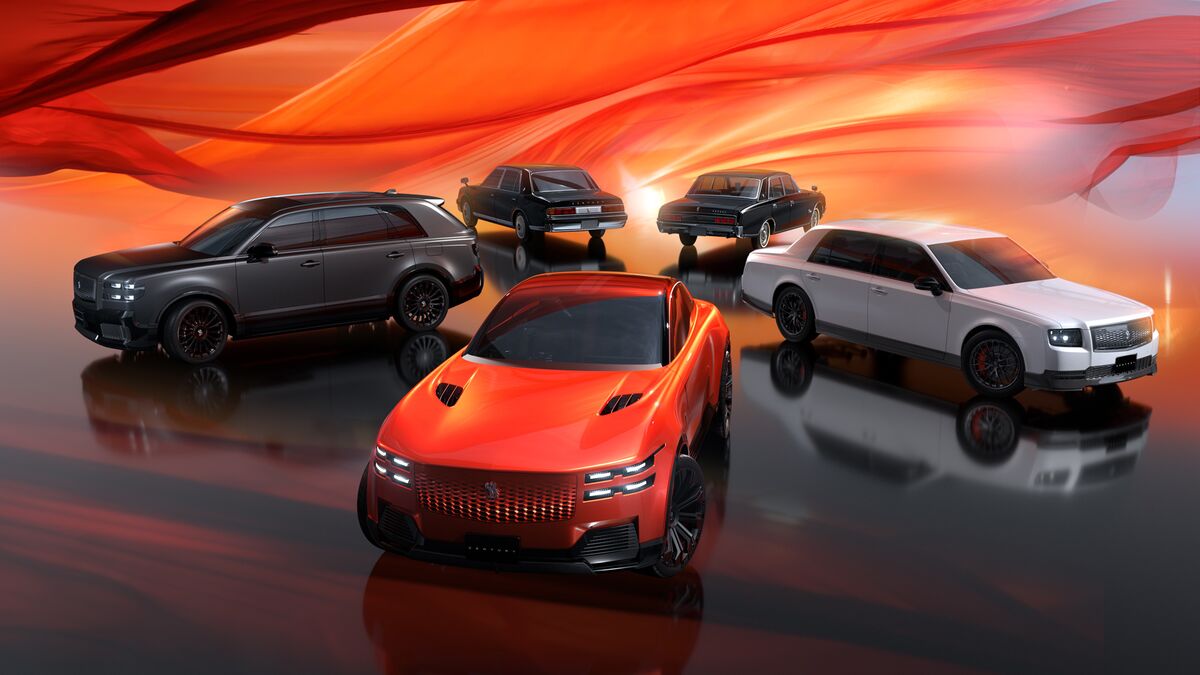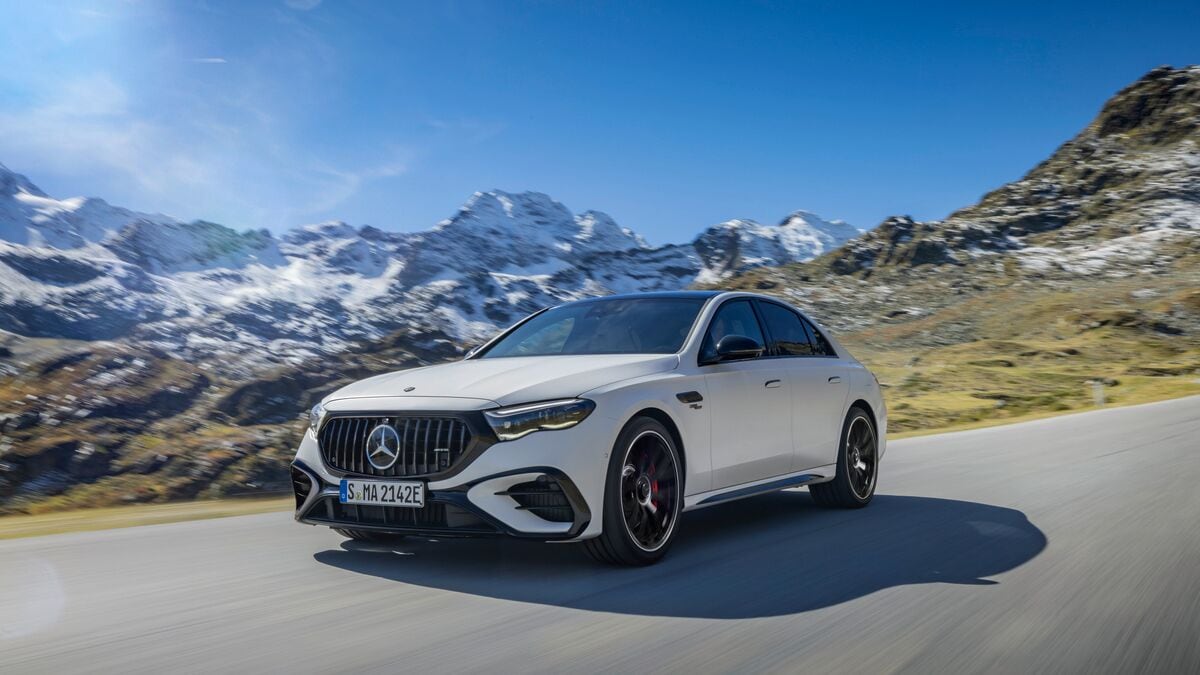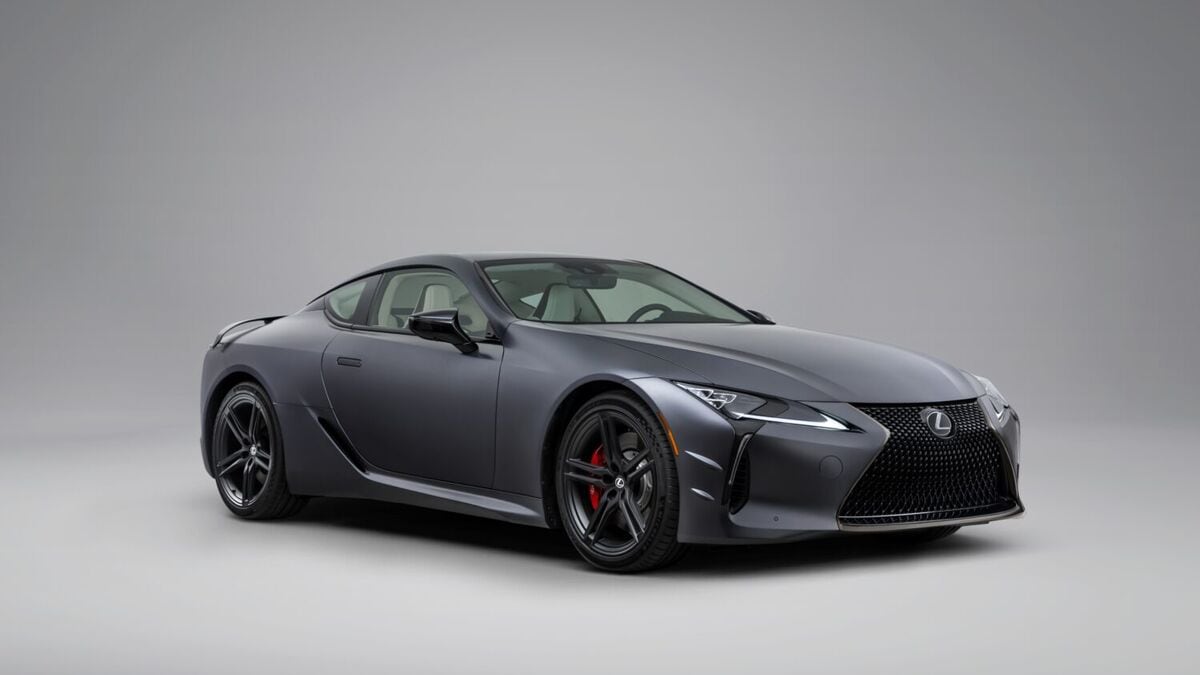The luxury division of Hyundai has again changed plans for distribution, and will now offer Genesis franchises to all its dealers rather than just a limited number of top ranked points. Earlier, Genesis said it would have 100 showrooms in 48 markets and would be geared more towards urban areas where luxury cars perform better.
Dealers were unhappy over the exclusive nature of the offer, however, so Genesis recently told all Hyundai dealers they could apply for franchises and that the dealer body could grow to be more than the initial 100 announced earlier this year. That doesn’t mean that the Genesis model range, which consists of three sedans, the upcoming G70 and current G80 and G90 will be sold through existing stores, but rather through standalone facilities. Automotive News reports that a Genesis spokesman said all 2019 models "will only be wholesaled to newly franchised Genesis retailers."
The report quoted an unnamed dealer as saying "By having more nationwide distribution, you’re going to allay consumer fears that they’ll be traveling and not be able to get service on their vehicle. If it pans out, it’ll be a great thing. It’ll help sell more cars, it’ll help overall dealer profitably, strengthen their dealer network, and include all those who want to sell the product, and believe in the Genesis product, to sell and service those cars. I think it’s a great decision."
According to the new plan obtained by the trade paper, all Hyundai dealerships can apply for a Genesis franchise. There are about 350 elite-level dealerships carrying G80 and G90 sedans and they will be allowed to continue to sell the product. However, if they want to carry the full line they, along with other Hyundai dealers, must sign new agreements that also require separate showrooms and service facilities.
Mercedes shows virtual owner’s manual
Late last year, Mercedes-Benz USA did a pilot test of a new application known as "Ask Mercedes" that allowed customers to explore features of their vehicle using augmented reality technology that supplemented a camera image with computer-generated content. Through their smartphones, customers can get answers to questions about operating their new vehicle in real time without ever opening an owner’s manual. Once the feature has been visually identified, the system explains the corresponding function to the customer via text descriptions, photo and video content or providing the customer the option to directly link to the section of the digital owner’s manual relevant to that feature.
"We are creating a personalized customer experience that goes well beyond the vehicle. With innovative services such as ‘Ask Mercedes’, we are further expanding our digital ecosystem", says Britta Seeger, Daimler board member responsible for Mercedes-Benz Cars Sales.
The pilot of "Ask Mercedes" first launched in late 2017 on the 2018 Mercedes-Benz E-Class and was just added for the 2018 S-Class. It will gradually expand in the coming months to additional model lines. "Ask Mercedes" is currently available for download in the Apple App Store and will be supported on iPhones 6 and newer running iOS 10 or higher.
Sales slump
New vehicle sales dropped nearly 5 percent over year ago levels, but still remained on pace to crack 17 million vehicles this year. Seven makes posted single digit gains, while Nissan, which dramatically cut fleet and daily rental shipments, saw a decline of 28 percent. Big gainers among individual brands include Jeep, which on the strength of its all-new Wrangler, saw sales 20 percent higher than they were a year ago. That performance helped parent Fiat Chrysler Automobiles post a 4.5 percent increase for the month, despite sales falling at all the other brands except Dodge, which had a 3.9 percent jump in sales.
Volvo also had a strong month thanks to its new XC40, posting a 17 percent gain over the previous April. Also up were BMW at 4 percent, VW at just over 3 percent and Mercedes-Benz 2 percent. Besides Nissan, other makes that saw decreases include Honda, off 9.2 percent, Toyota down 4.7 percent, Ford off 4.5 percent and GM an estimated 2.7 percent. GM no longer reports monthly sales and will only announce official figures quarterly.
Meanwhile, incentives continue to climb, reflecting a tougher sales environment. J.D. Power reports that the average incentive spend is $3,698, up $187 from a year ago. The higher incentives are on trucks and SUVs—up $426—while average spiffs on cars are down $226.
Transaction prices climb
The average price of new vehicles climbed to $35,411 in April, a 2-percent increase of $710 over last year. However, the ATP is moderating somewhat, having dropped $99 month-over-month. Driving these higher average prices is the shift in consumer demand away from traditional cars to light trucks and SUVs. According to J.D. Power, truck and crossover penetration reached 67 percent in April, its highest level ever.
“Average transaction prices moved up another 2 percent in April, with most manufacturers reporting year-over-year increases,” said Tim Fleming, analyst for Kelley Blue Book. “Although fuel prices rose for the second month in a row and are nearing a $3 per gallon national average, Kelley Blue Book saw greater price increases for SUV models than with cars. Luxury SUVs performance particularly well, as less price-sensitive luxury buyers splurged for the latest models, such as the Lincoln Navigator (up 30 percent), Volvo XC60 (up 16 percent) and Infiniti QX50 (up 12 percent).”
Luxury full-size SUVs and crossovers saw average prices climb 6.5 percent. Full-size SUVs and crossovers climbed 3.2 percent, propelled by the new Ford Expedition, while full-size pickups were up 2.1 percent, which reflects the introduction of the new 2019 Ram 1500. Even though Toyota has been running an aggressive lease program on its all-new 2018 Camry, the Japanese make saw its ATP climb 11 percent for that car and 3 percent overall for the make. Volkswagen also saw prices climb 9 percent as a result of the new Atlas and Tiguan crossovers.
The rundown
Hatchbacks are making a quiet comeback as seen in the 2019 Toyota Corolla. We take this stylish 5-door for a spin in this First Review.
Gas prices are going up. If you haven’t been in the market for a while and are worried about fuel economy, here are 5 Gas Saving Technologies to Shop For.
Plug-in hybrids are the next big thing in fuel efficiency. We drive the 2018 Honda Clarity, Toyota Prius Prime, Chevrolet Volt and Hyundai Ioniq in this Comparison Test.
In the market for a new car? Explore these useful tips on how to get the best deal:
What to look for in your next economy car
Kelley Blue Book’s Complete Guide to Incentives
All you need to know about leasing
